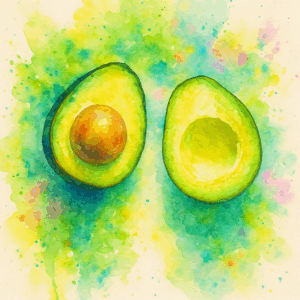Learn French with this song from Professor Rollet! Pascal Rollet is a professor and musician who has been composing songs that focus on a particular linguistic structure that gets reinforced in meaningful lyrics, set to sophisticated yet catchy contemporary music and instrumentals. Find the full song here.
Start quiz, type what you hear, then join the conversation.
Did you find this one challenging or easy? Did you hear something diffferent? What surprised you? What levels did you complete? Comment below and share what’s opening up for you with this quiz.
Learn French with this song from Professor Rollet! Pascal Rollet is a professor and musician who has been composing songs that focus on a particular linguistic structure that gets reinforced in meaningful lyrics, set to sophisticated yet catchy contemporary music and instrumentals. Find the full song here.
Learn French with this song from Professor Rollet! Pascal Rollet is a professor and musician who has been composing songs that focus on a particular linguistic structure that gets reinforced in meaningful lyrics, set to sophisticated yet catchy contemporary music and instrumentals. Find the full song here.
Expressions
What’s opening up for you with this clip?
Listen to the full song:
The snippet in English
Find a translation of this snippet here, how much of this did you hear?
Si je suis à l’heure, tu es de bonne humeur /
quand nous sommes au régime eau et pain, /
c’est vous qui avez faim /
elle est fatiguée, quand il est pressé /
nous sommes préoccupés, quand vous êtes débordés /
elles sont de mauvaise humeur /
quand ils sont saouls de bonne heure /
il est à côté de la plaque /
si elle est fâchée et lui donne une claque /
il est ravi, quand elle a besoin de lui /
il est ravi, quand elle a besoin de lui /
Si je suis à l’heure, tu es de bonne humeur /
Si je suis à l’heure …
If I’m on time, you’re in a good mood /
when we’re on a bread-and-water diet, /
you’re the one who’s hungry /
she’s tired, when he’s in a hurry /
we’re preoccupied, when you’re overwhelmed /
they’re in a bad mood /
when they’re drunk early /
he’s out of it /
if she’s angry and slaps him /
he’s delighted, when she needs him /
he’s delighted, when she needs him /
If I’m on time, you’re in a good mood /
If I’m on time …
English translation by Deepl. Check it.
What does “au régime eau et pain” mean?
Au régime eau et pain means on a bread-and-water diet—a figurative or literal expression for being under very strict conditions, often as punishment or extreme simplicity.
Example: Il a été mis au régime eau et pain après sa bêtise (He was put on bread and water after his mistake)
– régime = diet or regimen
– eau et pain = water and bread, a symbol of bare survival
This phrase can be used literally (in prisons, historically) or figuratively to describe a situation of austerity, deprivation, or punishment.
In France, it’s used mostly in figurative speech or humor. In Quebec, it’s understood but less commonly used; other expressions like être privé de tout might be heard. In Francophone Africa, the phrase is known but can sound very literary or old-fashioned depending on the context.
What does “saouls” mean?
Saouls means drunk—it’s the masculine plural form of the adjective saoul (also spelled soûl), meaning intoxicated by alcohol.
Example: Ils étaient complètement saouls après la fête (They were completely drunk after the party)
– Singular: saoul / saoule
– Plural: saouls / saoules
– Informal equivalent: bourré (very common in speech)
In France, saoul is slightly more formal or neutral, while bourré is more slangy and vivid. In Quebec, saoul is widely used and often pronounced with a local accent. In Francophone Africa, saoul is common in written French, but in speech you might hear regional expressions or code-switching with local languages.
What does “à côté de la plaque” mean?
À côté de la plaque means off the mark, missing the point, or way off—used when someone misunderstands something or is out of touch with reality.
Example: Tu crois qu’il plaisante ? T’es complètement à côté de la plaque. (You think he’s joking? You’re totally off the mark.)
– Literal meaning: beside the plate
– Figurative: misunderstanding, misjudging, or responding inappropriately
In France, this is a very common and vivid expression, often used informally. In Quebec, it’s understood but être dans le champ (to be in the field) is more typical. In Francophone Africa, the phrase is known in formal French, though not always used in speech unless among fluent speakers.
What does “fâchée” mean?
Fâchée means angry, upset, or mad—the feminine singular form of the adjective fâché.
Example: Elle est fâchée contre lui (She’s mad at him)
– Often used with contre (against) to say who someone is upset with
– Can also mean no longer speaking to someone:
Elles sont fâchées depuis un an (They haven’t spoken in a year)
In France, fâché(e) is common in everyday conversation. In Quebec, it’s widely used too, sometimes alongside choqué(e). In Francophone Africa, fâché(e) is standard in spoken and written French, especially among younger and urban speakers.
What does “donne une claque” mean?
Donne une claque means gives a slap or slaps someone—from the verb donner une claque à quelqu’un.
Example: Elle lui donne une claque en pleine figure (She gives him a slap across the face)
– une claque = a slap, usually with the hand
– donner une claque = to strike someone, either literally or metaphorically (e.g. a surprise)
Figurative use:
– Cette nouvelle m’a donné une claque
(That news hit me hard) → emotional or shocking impact
In France, claque is used both literally and figuratively. In Quebec, it’s understood, but gifle is more formal for a slap. In Francophone Africa, claque is commonly used, though context will determine whether it’s taken literally or metaphorically.
What does “ravi” mean?
Ravi means delighted or thrilled—the masculine singular form of the adjective ravi(e), expressing great joy or satisfaction.
Example: Je suis ravi de vous rencontrer (I’m delighted to meet you)
– Feminine: ravie
– Can be followed by de + verb or noun:
Elle est ravie de son cadeau (She’s thrilled with her gift)
Ils sont ravis d’être là (They’re happy to be here)
In France, ravi is polite and commonly used in both speech and writing. In Quebec, it’s used similarly, though expressions like content or bien heureux might also appear. In Francophone Africa, ravi is frequent in formal or public French, especially in interviews or official events.
Discover the Rhythms of French with Music: Enhance Your Learning Experience
Music, with its catchy melodies and repetitive structures, is a powerful tool for language learners. It not only entertains but also reinforces linguistic patterns, making it easier to grasp and remember new vocabulary and phrases.
Why Learn French with Music?
- Cultural Immersion: French music offers a window into the rich tapestry of French culture, traditions, and history. By exploring different genres – from classic chansons to contemporary pop – you gain deeper insights into the French way of life.
- Memorable Vocabulary: Lyrics in songs are often catchy and repetitive, aiding in memorization. Music acts as a mnemonic device, making retention of new words and phrases more effective.
- Pronunciation Practice: Singing along with French songs is a fun way to improve your accent and intonation. It helps in mimicking native speech patterns and rhythms.
- Emotional Connection: Music evokes emotions, making the learning experience more engaging and memorable. You’re more likely to recall phrases associated with emotions stirred by a song.
- Diverse Learning: Through songs, you’re exposed to a variety of dialects, slangs, and expressions used in everyday French, broadening your understanding of the language.
Why Practice Transcriptions with Music to Improve Listening in French?
- Enhanced Listening Skills: Transcribing lyrics sharpens your listening abilities. It challenges you to distinguish words and phrases within the flow of music, improving your auditory comprehension.
- Contextual Learning: Understanding the lyrics within the context of a song helps in grasping the nuances of French language usage, such as idiomatic expressions and colloquialisms.
- Active Engagement: The process of transcription is an active learning exercise. It encourages you to focus intently on the language, enhancing concentration and retention.
- Grammar and Structure Exposure: Analyzing song lyrics exposes you to different grammatical structures and sentence constructions, contributing to a deeper understanding of French grammar.
Try other clips from songs on site today!
What did you love about this?
Comment below with your feedback! Tells us what you think. Send a note or leave a comment below. We appreciate the feedback. Also, we’re always looking for partners to build this site and grow the content available.








